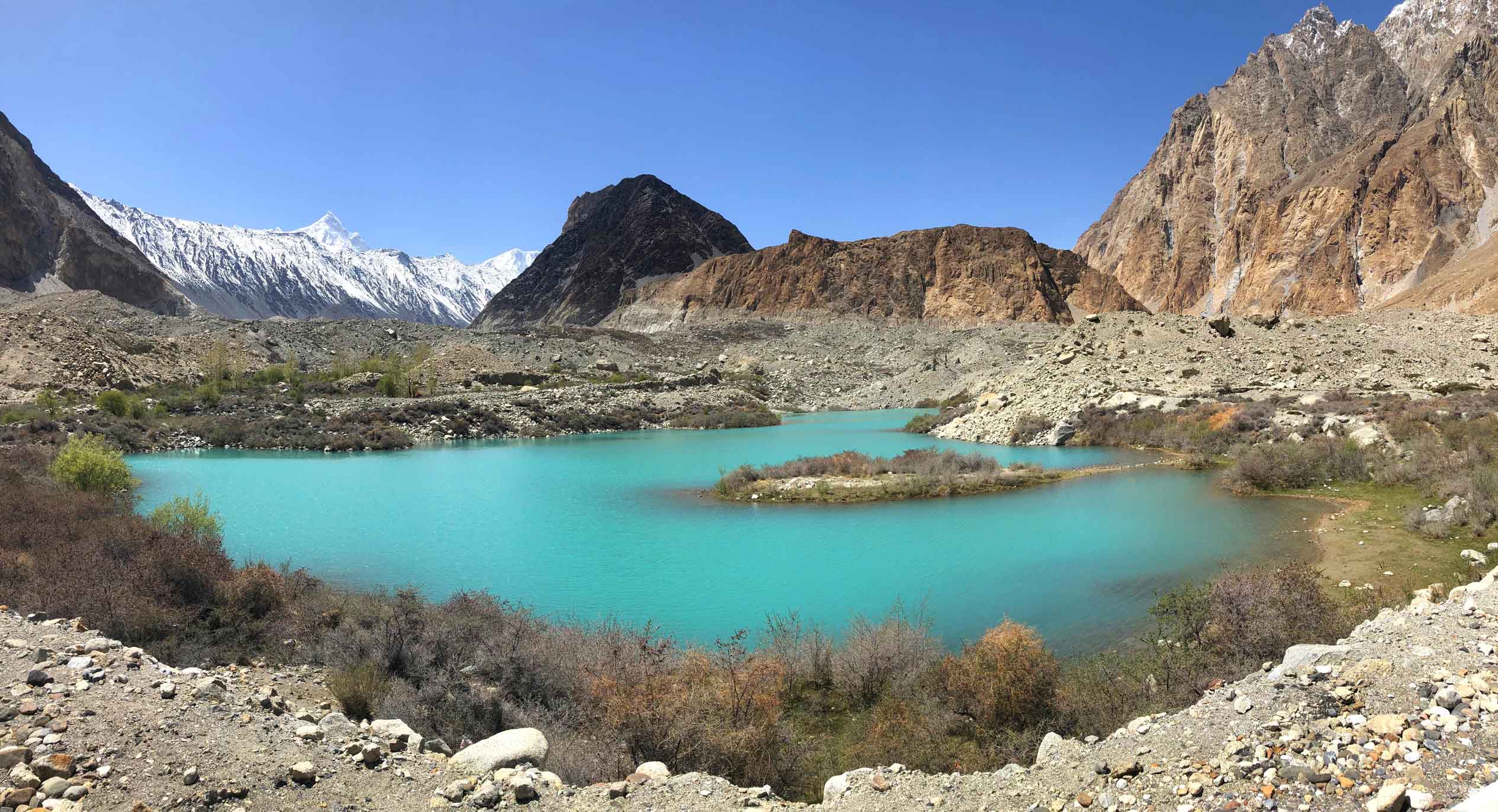Primary Care Physicians and Planetary Health - Pakistan

Primary Care Physicians and Planetary Health
Changing climate is a global challenge, but Pakistan, a low- and middle-income country (LMIC), is one of the world’s most vulnerable nations to the effects of climate change, facing frequent and intense natural disasters, from devastating monsoon floods to unrelenting heatwaves. Planetary health has emerged as a critical concern, threatening not only economic and political stability but also the social determinants of health, leading to various psychological impacts.
Advocating for environmental health as part of the physician-patient relationship can significantly help address health implications. The first step toward integrating environmental protection and preventing adverse health outcomes within a holistic care model is to sensitize primary care physicians to their responsibility in facing the climate challenge. One approach is through educational workshops that address the impacts and suggest health measures.
SINA, a primary healthcare organization with 40 clinics in Karachi’s urban slums, organized a conference to address this under-recognized issue. The event included a variety of sessions, interactive education formats, and group discussions designed to engage participants. Around 110 primary care physicians gathered to explore a key question: how can healthcare professionals in Pakistan arm themselves in the fight against climate change? This event marked a significant shift in Pakistan’s climate change discourse, moving beyond economic and environmental impacts to directly address health implications.
Are Family Physicians Prepared for the Challenge of Climate Change?
Dr. Hina Jawaid, a respected family physician and Associate Professor at the Family Medicine Department of Health Services Academy in Islamabad, chaired a discussion on Pakistan’s vulnerability to climate change. The country’s greenhouse gas emissions are rising at an alarming rate of 6% annually, equivalent to 18.5 million tons of carbon dioxide, with dire public health implications.
The rising temperatures and worsening air pollution are linked to a 1-3% increase in morbidity and mortality rates, particularly among the elderly. The first session examined whether family physicians are prepared to address climate-related health issues. The answer, unfortunately, was not yet. The discussion emphasized that climate change is not a distant threat but a present reality already impacting millions’ health. Physicians were urged to incorporate climate considerations into daily practice, from recognizing climate-induced conditions to educating patients on associated risks.
Impact on Non-Communicable and Communicable Diseases
The discussion then shifted to non-communicable diseases (NCDs), a rising concern in Pakistan. Participants drew connections between climate change and the increasing prevalence of NCDs, particularly cardiovascular diseases and stroke. Rising temperatures and poor air quality have led to a 1-3% increase in morbidity and mortality, with a heavier burden on healthcare, evidenced by increased Emergency Department visits for cardiovascular events, especially in patients aged 65 and older. Case studies and best practices were shared, providing physicians with strategies to mitigate these effects in their communities.
Equally compelling was the exploration of communicable diseases. Climate change is altering the landscape of infectious diseases. Changing temperatures and rainfall patterns have increased the spread and altered the distribution of vector-borne diseases like leishmaniasis, malaria, and dengue. The session underscored the importance of disease surveillance, prevention, and control in the fight against these diseases as climate change complicates these efforts.
Mental Health Concerns
One of the event’s most poignant moments focused on mental health, often overlooked in climate discussions. The psychological toll of climate change—including anxiety, trauma, and distress—was explored in depth. Vulnerable populations, already facing socioeconomic hardships, are now experiencing heightened mental health challenges due to environmental stressors and disasters, such as recent floods in Sindh. The session highlighted the critical role of primary care physicians in recognizing and addressing these mental health issues, providing a lifeline to those most affected.
Practical Solutions and The Green Initiative Program
A highlight of the event was an interactive session that equipped physicians with practical tools to address climate-related health issues. Group discussions were lively as participants shared ideas on reducing environmental harm by incorporating climate considerations into their practice. Topics included recycling, reducing single-use plastics, and adopting energy-efficient appliances—simple yet impactful actions toward sustainability.
SINA Health, Education, and Welfare Trust has since implemented a comprehensive "Green Initiative Program" aimed at making their clinics more sustainable. This includes training clinical and non-clinical staff on sustainable practices, a shift toward recycling, reduced paper usage, and eco-friendly medical supplies. A plantation drive across all clinics further exemplifies SINA’s commitment to environmental stewardship. SINA clinics have also adopted solar energy to conserve electricity, and clinic doctors regularly audit energy use, ensuring equipment is off when not needed and addressing leaks or maintenance issues promptly. Reducing single-use plastics, mindful paper usage, and promoting sustainable transport options like carpooling and public transportation incentives are part of their broader environmental efforts.
Conclusion
This initiative sparked renewed interest in climate-related research, advocating for more studies to guide healthcare in a climate-conscious era. For the attending physicians, it was a transformative experience that broadened their understanding of climate change and empowered them to take action. The message was clear: the fight against climate change is not just an environmental or economic issue; it is a health imperative.
By educating primary care physicians and equipping them with tools to address climate-related health challenges, SINA Health, Education, and Welfare Trust ensures vulnerable populations are not left behind in this global crisis. In the words of one speaker, "The health of our planet is inextricably linked to the health of our people. It’s time we recognize that and act accordingly."